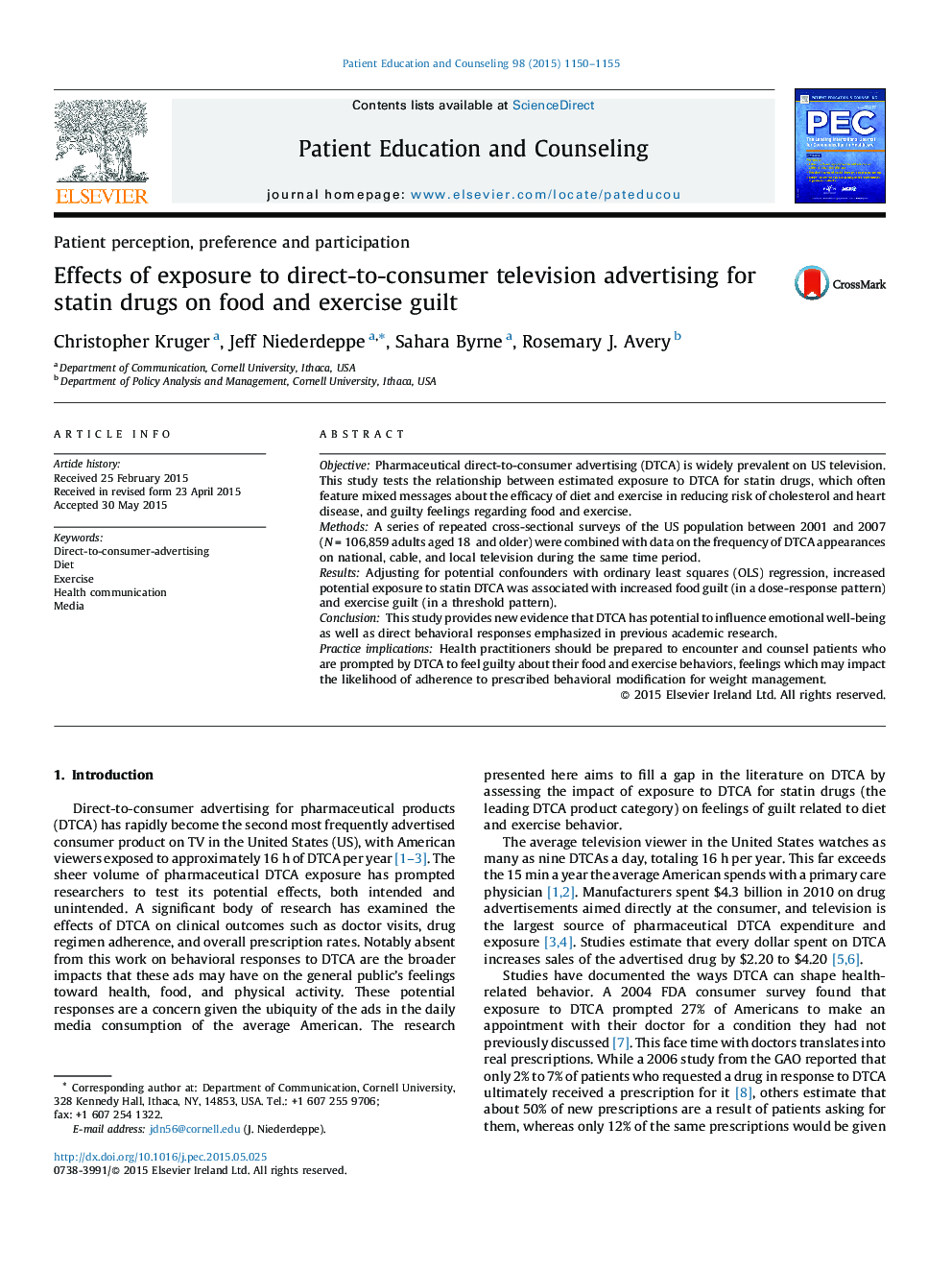| Article ID | Journal | Published Year | Pages | File Type |
|---|---|---|---|---|
| 3813197 | Patient Education and Counseling | 2015 | 6 Pages |
•Exposure to statin DTCA predicts increased levels of food and exercise guilt.•Exposure to statin DTCA was not, however, associated with increased self-worry.•Diet and exercise guilt may impact adherence to prescribed behavior modification.
ObjectivePharmaceutical direct-to-consumer advertising (DTCA) is widely prevalent on US television. This study tests the relationship between estimated exposure to DTCA for statin drugs, which often feature mixed messages about the efficacy of diet and exercise in reducing risk of cholesterol and heart disease, and guilty feelings regarding food and exercise.MethodsA series of repeated cross-sectional surveys of the US population between 2001 and 2007 (N = 106,859 adults aged 18 and older) were combined with data on the frequency of DTCA appearances on national, cable, and local television during the same time period.ResultsAdjusting for potential confounders with ordinary least squares (OLS) regression, increased potential exposure to statin DTCA was associated with increased food guilt (in a dose-response pattern) and exercise guilt (in a threshold pattern).ConclusionThis study provides new evidence that DTCA has potential to influence emotional well-being as well as direct behavioral responses emphasized in previous academic research.Practice implicationsHealth practitioners should be prepared to encounter and counsel patients who are prompted by DTCA to feel guilty about their food and exercise behaviors, feelings which may impact the likelihood of adherence to prescribed behavioral modification for weight management.
